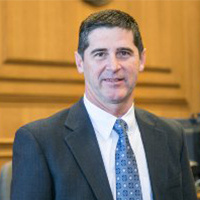Williamsburg Collection Lawyer, Kansas
Not enough matches for Williamsburg Collection lawyer.
Below are all Williamsburg Bankruptcy & Debt lawyers.
Robert Eldon McRorey
✓ VERIFIEDBankruptcy & Debt
Providing Real Legal Solutions To Real People For More Than 30 Years.
Robert E. McRorey is a practicing attorney in the state of Kanasas. He graduated from University of Kansas School of Law with his J.D. in 1984. He cur... (more)
David S. Adams
✓ VERIFIEDAccident & Injury, Bankruptcy & Debt, Workers' Compensation, Medical Malpractice
For over 20 years, we have been providing effective and affordable legal services for individuals and families. When an accident or injury occurs, ... (more)
Michael Grear
Consumer Protection, Corporate, Consumer Bankruptcy, Bankruptcy
Status: In Good Standing
FREE CONSULTATION
CONTACTRay Kowalczewski
Bankruptcy, Corporate, Business Organization, Business Successions
Status: In Good Standing
Russell B Cloon
Real Estate, Litigation, Bankruptcy, Bankruptcy & Debt
Status: Deceased Licensed: 33 Years
Arturo Alejandro Thompson
Litigation, Lawsuit & Dispute, International, Bankruptcy & Debt
Status: In Good Standing Licensed: 18 Years
Arturo Alejandro Thompson
Litigation, International Other, Bankruptcy, Bankruptcy & Debt
Status: In Good Standing Licensed: 18 Years
David P. Trevino
Wills & Probate, Wills, Employment, Bankruptcy
Status: In Good Standing Licensed: 18 Years



